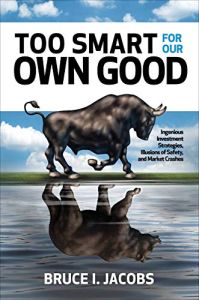加入 getAbstract 阅读摘要

加入 getAbstract 阅读摘要
Bruce I. Jacobs
Too Smart for Our Own Good
Ingenious Investment Strategies, Illusions of Safety, and Market Crashes
McGraw-Hill, 2018
看看什么内容?
“Free-lunch” investment strategies contribute to the cycle of financial crises.
Recommendation
You might think that financial crises are mathematically unlikely events, but they happen with surprising frequency. Author and equity manager Bruce I. Jacobs says there’s something wrong about that. He believes that people’s attitudes about risk, liquidity and leverage are often delusional and naive because financial professionals sell them “free-lunch” strategies that promote flawed thinking about efficient markets and rational investors. Despite a tendency for repetition, Jacobs offers some hard-hitting wisdom gleaned from his detailed knowledge and experience in market investing. Fund managers and investors of all types will find value in his exploration of the common causes of financial calamities.
Summary
About the Author
Bruce I. Jacobs is the co-founder and co-director of Jacobs Levy Equity Management. He is the author of several books on investing and financial crises.




















Comment on this summary